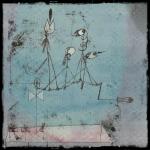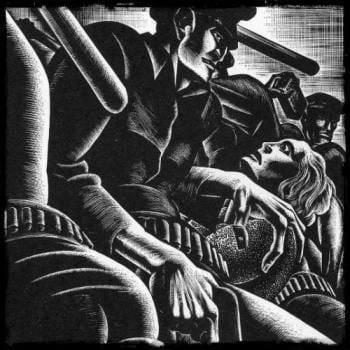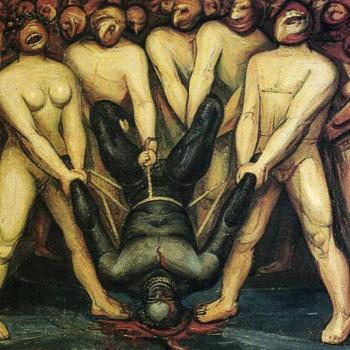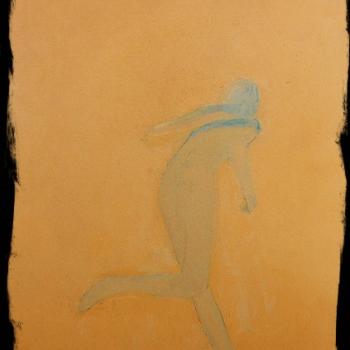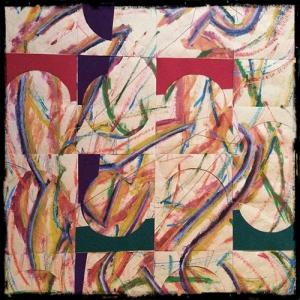
In 2007, Professor Robert George, McCormick Professor of Jurisprudence and Director of the James Madison Program in American Ideals and Institutions at Princeton University, delivered the John Dewey Lecture in Philosophy at Harvard Law School. George himself received his legal education at Harvard, and was there introduced to ideas about the relationship between law and morality, the study of which, as he happily tells us, became his life’s vocation.
George’s 2007 lecture, entitled “Natural Law” (and subsequently published in the Harvard Journal of Law and Public Policy), for our purposes serves beautifully as a primer on the intellectual foundations of philosophies of natural law. The lecture is broad and basic enough to initiate the unwashed, yet sufficiently subtle and nuanced to entice those already fluent with natural law and other Western moral philosophical traditions (specifically, utilitarianism and deontology).
I hope to further distill from this natural law primer the ideas on which the logical coherence of natural law philosophy depends. From that foundation, I’ll launch an exploration of the political and moral challenges presented to us in the 21st century by natural law philosophy’s subordination, itself, to the precepts of revealed religion.
George’s language in this lecture/essay is probably more turgid and formal than it needs to be, even for an august institution such as Harvard, but as we shall see, this pontifical style conforms to the vaulted sense of purpose that generally characterizes Catholic moral philosophy (for other examples, read pretty much anything from First Things, the Catholic-inspired journal of religion and public affairs). One of the challenges in addressing this elaborate, high-sounding (almost Counter-Reformation Baroque) language is to avoid its seductions and attend to how easily its curlicues can blandish us into a kind of nodding, soporific submission that muffles some of the philosophy’s underlying nastiness. Anyway, let’s get into it.
Key Terms
The precepts of natural law moral philosophy both absorb (from revelation and scripture) and communicate (into public discourse and legal practice) a quite specific understanding of the human individual as the summit of God’s creation, shaped in the image of God himself. The vocabulary of natural law philosophy organizes itself around this concept of the imago Dei. Here are some key terms, all of which we’ll consider throughout this series of essays: Revelation, Character, Creation, Creator, Freedom, Human Dignity, Human Flourishing, Imago Dei, Individuality, Nature, Reason, Self-Evidence, Virtue.
Human Flourishing
George associates rights and justice with a moral account of human flourishing that encompasses intrinsically human goods. George’s stipulations organize this moral accounting around a human telelogy. That humans, as a species and individually, should flourish, is a noble end in itself that requires no justification outside of itself. In other words, it is in our nature to know and to seek the goods that allow us to flourish.
Against this concept of flourishing, George says, both individualism and collectivism risk becoming dangerous subjunctives that reduce human individuals and human associations to merely instrumental currencies of value or exchange. In this balance between our inner life and individual fulfillment and our external relationships and social happiness, George locates an Aristotelian golden mean toward which we must constantly strive, with Natural Law the carpenter level that trues our behavior in relation to this moral constant.
Practical Reason
George also emphasizes, repeatedly, that reason is the means by which humans can identify and pursue the goods that support the flourishing of the species (with the exercise of one’s rational faculties itself one of the highest types of flourishing). George specifically emphasizes the singular gift to humans of “practical reason”, the quality of mind that allows us to discern the goods humans all seek, as well as the virtues attached to this seeking, and the flexibility to accommodate and adapt to the diverse circumstances of our existence in order to pursue these goods.
What would be examples of these intelligible, intrinsic goods toward which we are guided by the laws of reason and nature? Christopher Tollefson is philosophy professor at the University of South Carolina, a buddy of Robby George’s, and a fellow member of the new State Department Commission on Unalienable Rights founded by Robby George. Tollefson tells us these intelligible, intrinsic human goods include: “life and health; knowledge and aesthetic experience; skilled work and play; friendship; marriage; harmony with God, and harmony among a person’s judgments, choices, feelings, and behavior.”
Fair enough, one might say. But natural law philosophy here pivots momentously, by conflating nature and reason.
Nature and Reason
The background to this conflation of nature and reason – that which is natural and that which we can know – is the crazy-complicated intramural philosophical conversation about the naturalistic fallacy, which tackles questions about whether it is possible to establish an ethics or a deontology as natural, intrinsic, given, or self-evident. For our purposes, we need only emphasize that within the tradition of natural law philosophy (following Aquinas), nature refers to the fixed, unalterable essence of every living creature, generally associated with its capacities, those unique attributes or potentialities that allow it to know itself, to survive and to thrive.
Specific notions of human nature within natural law moral philosophy refers to the divinely bestowed rational capacities – unique to humans – that we use to locate and pursue those “intelligible, intrinsic” goods that are appropriate to our nature. In other words, the proper exercise of practical reason will unfailingly steer us toward that which we are by nature, and toward that which God intends and wants us to be. Hence the depths of the consternation among Catholic proponents of natural law moral philosophy concerning those humans who deviate from these norms (who are deviant), who behave in a manner, promiscuous or otherwise, that violates the natural order created by God, and who are thus monstrous in the eyes of God.
So the term natural law itself might actually, and more accurately, mean “the law of reason,” that sense of the intrinsic order and essence of things we can observe empirically and understand logically with reference to fixed attributes, essences, and teleologies. The Arisotelian foundations of this taxonomic/taxidermic perspective on nature’s creation are clear enough. However, philosophers of natural law are equally beholden to the tenets of Abrahamic revealed religion, which views nature – complex and rich though it may be – as a fixed order imposed upon the universe, from outside time and space, by a Creator God.
Imago Dei
Why does this conflation of nature and reason matter? Because for philosophers of natural law, reason is a highest-order capacity specific and unique to humans, one not possessed by other creatures, a capacity that we alone share with the God that created us. Hence the idea that humans are separate and special from the rest of creation because they are created in the image of God, that each human soul possesses within itself the imago Dei, the spark of God.
Robby George adds to our rational faculties an additional, distinctly human, attribute: the capacity for “freedom,” by which he means free will, freely choosing. Together, reason and freedom grant to us capacities for deliberation, judgment, and choice. Both ontologically and epistemologically, we can imagine the operation of these capacities as pure mind apprehending itself and the world. And for George, this unique human potential to step outside of ourselves is what allows us to escape from the dependent status of other creatures enmeshed in the web of causation and to become ourselves, like God, uncaused causers.
According to Robby George, “These capacities are God-like [and] constitute a certain sharing – limited, to be sure, but real – in divine power. This is what is meant, I believe, by the otherwise extraordinarily puzzling Biblical teaching that man is made in the very image and likeness of God.”
Human Dignity
Consistent with Catholic theology, natural law moral philosophy cleaves mind from body, spirit from flesh – attaching mind/spirit to the Creator God and body/flesh to God’s Creation. The idea that God has distinguished humans from all other creatures by implanting within us the imago Dei, the divine spark, uniquely conjoins within us the spirit of the Creator and the flesh of the Created (an obviously salient point for interpreting the symbolism of the Christ story). The ultimate value emerging from this reconciliation within humans of the spirit-flesh dichotomy is the Catholic trope of human dignity, which was most clearly enunicated at the conclusion of the Second Vatican Council in 1965.
From legal and political perspectives, just laws and virtuous behaviors generally acknowledge and support the objective reality and intrinsic dignity and value of each human person. This more general sense of the term is mostly how Robby George discusses human dignity in the Natural Law essay. George emphasizes that human dignity derives from the human capacity for rationally motivated action (based on deliberation, judgment, and choice) free from the influence of external forces or internal emotions.
Of course, this is not a controversial view. Indeed, the concept of human dignity floods secular perspectives on social order and social justice. Most significantly, of course, in the 1948 United Nations Universal Declaration of Human Rights. But also more recently. For example, following the Ford-Kavanaugh Senate hearings of September 2018, New Yorker staff writer Masha Gessen observed, “When people are cast out of the political community—when they become stateless or lose their right to vote, or are simply marginalized to the point of becoming inaudible—they suffer the loss of dignity.” House Speaker Nancy Pelosi recently reported that on a visit to the U.S.-Mexican border, she and her congressional colleagues “prayed for those whose dignity is affected by the treatment at the U.S. border.”
Religious Liberty
However, the Catholic concept of human dignity specifically refers to “religious liberty” as free exercise of one’s conscience with regard to spiritual matters. In principle, this commitment to religious liberty as the predicate for human dignity extends across all religous persuasions and belief systems (presumably even those religious belief systems positioned ironically in opposition to Judeo-Christian traditions, beliefs, and practices, such as pantheism, satanism, or pastafarianism).
With free choice, we not only constitute/create a “reality” in the external world, we constitute/create ourselves as possessing a distinct, unique “character” we own and for which are responsible with reference to our words and deeds. As Robby George states, “morally significant choosing leads to a focus on virtues as habits born of upright choosing.” The culminating evidence of human dignity and human flourishing, then, is the upright behavior of rational individuals, according to a catalog of virtues, freely understood and freely chosen. Everything else is a falling away, a deviation, a deviancy.
In reality, of course, it is this risk of falling away, of deviations from God’s natural order, that concerns Robby George and other Catholic philosophers of natural law. In this sense, human dignity – defined as conformity to God’s natural order – superimposes and prioritizes traditional Roman Catholic beliefs about human sexuality, marriage, abortion, birth control, and biotechnology. Contrary to what one might assume about the emphasis on religious liberty, control of the movements and behaviors of bodies to prevent violations of God’s transcendent natural law is at the hypersexualized heart of the New Natural Law postulated by Catholic philosophers such as Germain Grisez and John Finnis (Robby George’s dissertation advisor and mentor) in the aftermath of the Second Vatican Council.
Creator/Author
Robby George’s primer on natural law absorbs and reinforces conventional Western ideas about individuality and causal agency that may owe more to the Enlightenment project (and less to Aquinas and the teachings of the Catholic Church) than he would like to admit. By anchoring these ideas to the Biblical concept of Imago Dei, however, George apotheosizes the individual human as a freely choosing, creative, God-like power. An uncaused Causer.
The Promethean echoes here are notable, but for our purposes, the most important implication concerns how natural law sets humans, who alone share reason with God, in opposition to the natural world, which (George and other conservative Catholics would say) does not reason or possess consciousness as we ordinarily think about these ideas.
George takes pains to emphasize that the logic of natural law philosophy does not require a belief in a Creator God. However, his own belief in such a God suffuses the Natural Law essay and, truly, imparts to this essay its most intellectually radical and significant moment, when George identifies the creative potential of practical reason and free will as a God-like, “awesome” power.
Indeed, everything George communicates in this essay flows from this belief, fundamental to Abrahamic revealed religions, that an omnipotent God stepped into time and space to make humans the pinnacle and purpose of the entire creation. George’s subjective, personal faith (by definition, ungrounded in any sort of objective or scientific evidence) in the Judeo-Christian-Islamic God as the prime mover of the universe, and the moral plane on which the universe rests, depends on a simple causation model, inscribed in Genesis, that literally authorizes the anthropogenic dominion – the hubris about our singular, special place in the universe – that has spun the planet off its bearings.
As God creates and makes for his own pleasure and purposes, so shall we. So much for the carpenter’s level and the moral plane.
Creation/Nature
Three important points are worth making regarding the existence of an immanent and knowable Creation implicated in both geologic time and human history (what we might otherwise call Nature), as distinct from a transcendent and cryptic Creator/Author that exists beyond the horizon and that reveals himself to us as series of scripts, as a God of Law. Indeed, this perspective on natural law moral philosophy liberates us from requiring any focus at all on the inscrutable Creator God who spoke to Abraham. If one thinks about natural law as the laws of nature inscribed within the Creation, generally, without reference to the rational, free will of a Creator, one can deduce quite a bit of existential truth from these inscriptions.
- Laws of Nature. The idea of capacities as the source of a creature’s nature (as in, it is the nature of a human to reason or a wildebeest to run in a herd) helps us to think about how we can imagine the created world itself, taking it in its own terms (without any reference to a Creator God), as the tablature for the inscription of the laws of nature.
- Civil Society and Positive Law. Natural law, loosened from a necessary dependence on revealed religion in the past 500 years, may have provided the Christian West with an emergent flexibility that opened a space for civil society and positive law that still (despite the influence on Western thought of Averroes), remains largely unavailable to Islamic cultures.
- Revelation and Common Goods.When framed in the context of a revelation-dependent philosophy of natural law, which in Genesis radically separates the Creator from the Creation, we can see how the natural world provides the stage on which God-like humans act to fulfill the mandate to subdue the earth. It is far less clear, indeed doubtful, how the concept of a common good, as Robby George describes it, might include the goods of the non-human creatures of natural world itself, all that which possesses no imago Dei and hence is by definition subordinate and instrumental to the human creature.
Self-Evidence and Causation
Robby George does not use the term self-evident in his Natural Law lecture. But the idea of self-evidence is central to natural law philosophy as conceived by Aquinas, and remains historically important as a way to think about fundamental truths captured by natural law– the “unalienable rights,” for example, of the preamble to the American Declaration of Independence that natural law moral philosophers hold so dear. Robby George frequently quotes this preamble, and the idea of self-evidence is never far from the surface of most of his writings on natural law. But the constitution of self-evident principles requires Robby George and other natural law philosophers to remain Creator-dependent and Scripture-dependent, which entirely handicaps their enterprise.
First, Catholic natural law philosophy requires a moral ground of being, the Uncaused Cause existing outside of time and space, to which self-evident truths can appeal. To be witnessed and known, these self-evident truths also require some revelatory experience – involving a scriptor, scripture, script, and scribe – to unveil the Creator God who manifests the Uncaused Cause, who stands apart from, authors, authorizes, and holds absolute authority over the Creation.
Unfortunately, the revelatory foundations of monotheistic Abrahamic faiths are preposterously and hilariously inadequate to provide this existential foundation. Not least because in a world governed by complexity (morally and biologically and otherwise), the idea of causation itself almost instantly break down. While it’s obviously become a reflex to say “correlation is not causation,” in reality, correlation is usually pretty much all we have. What complexity reveals is that our universe operates across an unfathomably enormous bandwidth of randmness. A vast amount of the life outcomes and human behaviors Robby George attributes to practical reason, free will, and human agency is stochastic.
Finally, the concept most crucial to Catholic law moral philosophy – the idea of the imago Dei – utterly fails to characterize the thickly and historically contextualized realities of “human nature.” Robby George and other natural law philosophers argue that practical reason captures self-evident principles of human existence that serve as “guardrails,” the fencing that folds us voluntarily and consciously into God’s order. The imago Dei makes us human, distinguishing us from beasts and other forms of created life. Robby George fears that when we strip away this layer and live only in history, when we seek to be implicitly self-governing, we will subordinate reason to dark desires and instincts that know no limit.
The reality, of course – one that science further confirms on a daily basis – is that other forms of created life are impressively (even movingly) complex, with perceptual, communication, and adaptive capacities that in many instances dwarf our own, and against which the prideful claims of human agency and human morality badly fade. Moreover, complexity science continually adduces evidence that all life on earth exists within marvelously intricate webs of interdependence, governed by spinning whorls of logic and imperative that exceed by orders of magnitude the marvels of Biblical revelation, and that require no justification or understanding outside of ourselves. Against these claims, natural law moral philosophy has no answers.
Further Reading on Natural Law
Websites
Publications
Articles
- Natural Law (Robert P. George, Harvard Journal of Law and Public Policy, 2007)
- Natural Law Theories (John Finnis, The Stanford Encyclopedia of Philosophy, 2015)
- The Natural Law Tradition in Ethics (Mark Murphy, The Stanford Encyclopedia of Philosophy, 2019)
Books
- After Virtue (Alasdair Macintyre, University of Notre Dame Press, 2007)
The Creation Project (Patheos)
- The Creation Project: Revealed Religion, Natural Law, Western Civilization, and the Ends of the Earth, July 10, 2019
- Culture War Catholicism and American Conservative Politics, July 12, 2019
- Serving God and Mammon: The Rise and Influence of the Heritage Foundation and the Federalist Society, July 14, 2019
- Unalienable Rights, Alien Populations and Natural Law: Unspoken Assumptions and Hidden Agendas of Mike Pompeo’s Commission on Unalienable Rights, August 2, 2019
- God and Religion at Princeton, August 6, 2019
- Aaron’s Rod: The Righteous Religious Rage of Robby George, August 8, 2019

